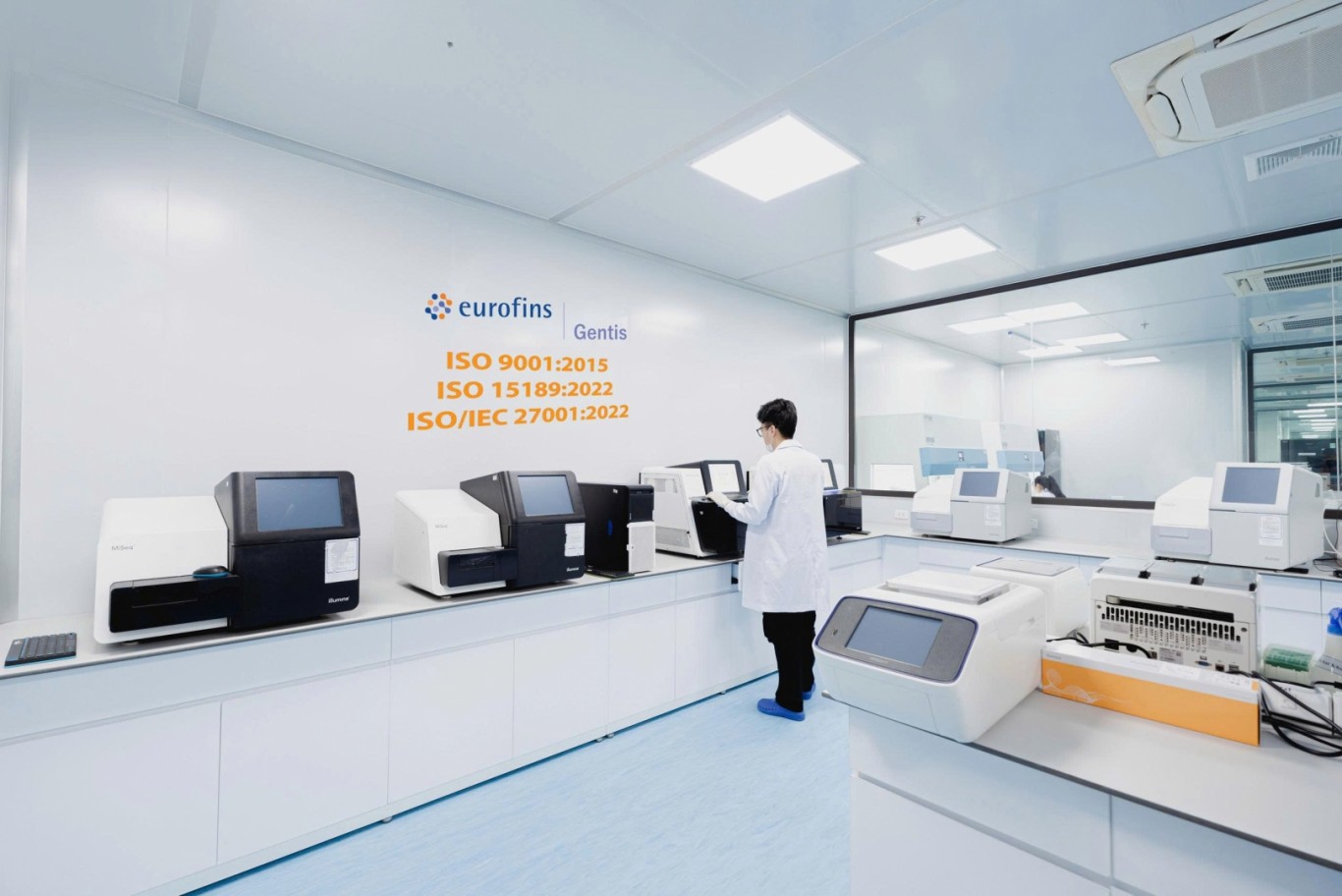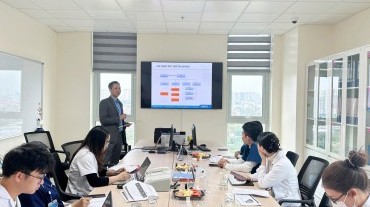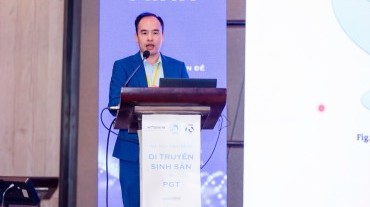GENTIS - A reputable organization performing PGT-M for 65 diseases
PGT-M is a preimplantation genetic screening for single-gene genetic diseases performed on embryos to screen for embryos that do not carry genetic diseases from their parents for transfer. This test is often indicated for couples carrying mutations that cause genetic diseases who wish to eliminate the disease or mutation in their offsprings. This is a very early screening method, before embryo transfer, so it can help avoid the situation of children being born with the disease as well as reduce the need to terminate pregnancy due to genetic mutations causing serious diseases.
Essentially, to perform PGT-M, couples need to undergo IVF to create embryos at Assisted Reproduction Centers. Qualified blastocysts will be biopsied (3-5 embryo cells will be taken from the area that will develop into the placenta later). The biopsied cell samples will be subjected to special testing methods to detect disease-carrying genes.
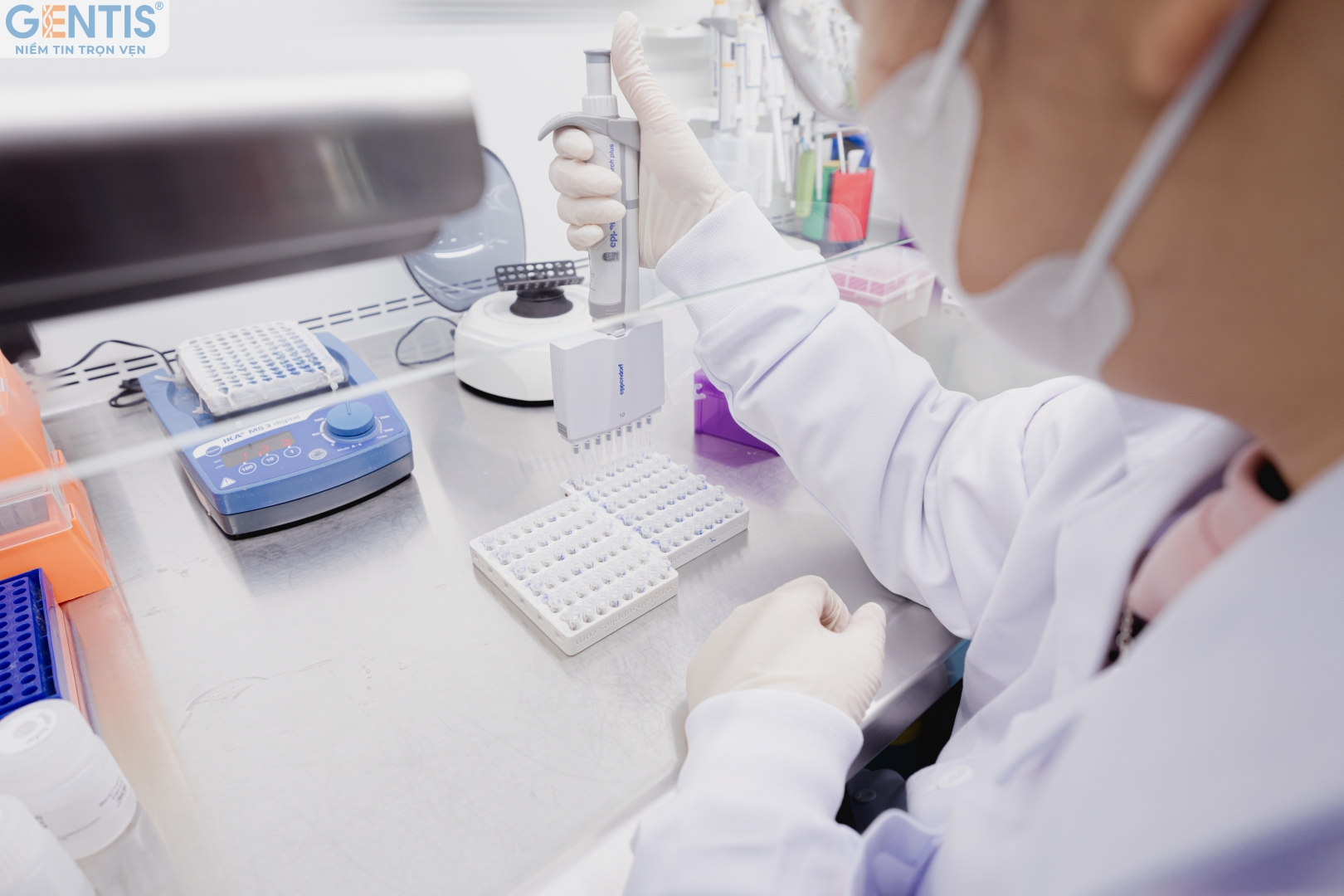 Currently, GENTIS has performed PGT-M screening for 65 single-gene diseases. This is one of the major advantages of GENTIS, which no other organization in Vietnam has achieved.
Currently, GENTIS has performed PGT-M screening for 65 single-gene diseases. This is one of the major advantages of GENTIS, which no other organization in Vietnam has achieved.
At GENTIS, alongside the application of new technological advancements, the utilization of modern equipment, and specialized analytical software, PGT-M testing is meticulously designed and executed to ensure the highest level of reliability in its results. Notably, GENTIS has currently implemented PGT-M screening for 65 single-gene disorders. This is a significant advantage that sets GENTIS apart as no other facility in Vietnam has achieved this capability.
List of 65 diseases that have been performed at GENTIS: What makes PGT-M at GENTIS special?
| Number | Diseases' Name | Gene | Genetic Rules |
| 1 | Alpha Thalassemia | HBA1, HBA2 | Recessive |
| 2 | Beta Thalassemia | HBB | Recessive |
| 3 | Spinal muscle atrophy | SMN1 | Recessive |
| 4 | Duchenne muscular atrophy | DMD | X-linked |
| 5 | Hemophilia A | F8 | X-linked |
| 6 | Hemophilia B | F9 | X-linked |
| 7 | HLA matching | HLA |
|
| 8 | Congenital adrenal hyperplasia | CYP21A2 | Recessive |
| 9 | Non-syndromic hearing loss | GJB2 | Recessive |
| 10 | Congenital hearing loss | GPSM2 | Recessive |
| 11 | Glucose-6 phosphate dehydrogenase deficiency | G6PD | Recessive |
| 12 | Phenylketonuria | PAH | Recessive |
| 13 | Citrin Deficiency | SLC25A13 | Recessive |
| 14 | Wilson desease | ATP7B | Recessive |
| 15 | Pompe disease | GAA | Recessive |
| 16 | Cystic fibrosis | CFTR | Recessive |
| 17 | Fabry disease | GLA | Recessive |
| 18 | Galactose metabolism disorder TYPE 1 | GALT | Recessive |
| 19 | Adrenal leukodystrophy | ABCD1 | X-linked |
| 20 | White matter cerebral dystrophy | ISCA2 | Recessive |
| 21 | White matter cerebral dystrophy | SETX | Recessive |
| 22 | Hypochromic leukodystrophy | ARSA | Recessive |
| 23 | 5-alpha reductase Deficiency | SRD5A2 | Recessive |
| 24 | Spinal muscular atrophy with type I respiratory failure | IGHMBP2 | Recessive |
| 25 | Myotubular myopathy | MTM1 | X-linked |
| 26 | Glass bones | COL1A1 | Dominant |
| 27 | Glass bones | COL1A2 | Dominant |
| 28 | Glass bones | P3H1 | Recessive |
| 29 | Achondroplasia | FGFR3 | Dominant |
| 30 | Marfan Syndrome | FBN1 | Dominant |
| 31 | Central core myopathy | RYR1 | Recessive |
| 32 | Muscle weakness | COL6A3 | Dominant |
| 33 | Jeune Symdrome | DYNC2H1 | Recessive |
| 34 | Adams- Oliver Symdrome | DOCK6 | Recessive |
| 35 | Polycystic kidney disease is dominantly inherited | PKD1 | Dominant |
| 36 | Polycystic kidney disease is dominantly inherited | PKD2 | Dominant |
| 37 | Atypical hemolytic-uremic syndrome | CFH | Dominant-Recessive |
| 38 | Renal tubular dysfunction | ACE | Recessive |
| 39 | Alport Symdrome | COL4A5 | X-linked |
| 40 | Hemophagocytic syndrome | PRF1 | Recessive |
| 41 | Hemophagocytic syndrome | STXBP2 | Recessive |
| 42 | Colon adenopathy | PAX7 | Recessive |
| 43 | Harlequin ichthyosis | ABCA12 | Recessive |
| 44 | Atopic dermatitis | FLG | Recessive |
| 45 | Familial hypercholesterolemia | LDLR | Dominant |
| 46 | Cardiac muscle relaxation | NEXN | Recessive |
| 47 | Brugada Symdrome | SCN5A | Dominant |
| 48 | Carnitine Acyltransferase Transferase (CACT) deficiency | SLC25A20 | Recessive |
| 49 | Neonatal diabetes | ABCC8 | Recessive |
| 50 | Neurofibromatosis | NF1 | Dominant |
| 51 | Bohring-Optiz Symdrome | ASXL1 | Recessive |
| 52 | NooNan 1 Symdrome | PTPN11 | Dominant |
| 53 | NooNan 4 Symdrome | SOS1 | Dominant |
| 54 | NooNan 5 Symdrome | RAF1 | Dominant |
| 55 | Kalman syndrome | VPS33B | Recessive |
| 56 | Kalman syndrome | PROKR2 | Dominant |
| 57 | Psychomotor disorders (EKD1) | PRRT2 | Dominant |
| 58 | mucolipidosis II alpha/beta | GNPTAB | Recessive |
| 59 | Bipotent protein-D protein deficiency) | HSD17B4 | Recessive |
| 60 | Transthyretin amyloidosis | TTR | Dominant |
| 61 | Aniridia (iridia) | PAX6 | Dominant |
| 62 | Mitochondrial disorders | SARS2 | Recessive |
| 63 | Hereditary cancer | MLH1 | Dominant |
| 64 | Chronic granuloma | CYBB | X-linked |
| 65 | Tuberous sclerosis | TSC1 | Dominant |
The speciality of GENTIS's PGT-M tests.
As a pioneer in the field of genetic analysis, GENTIS is always researching and implementing the most advanced gene testing in personalized infertility treatment around the world, including PGT-M. Since 2017, GENTIS has performed over 500 cycles with over 2000 embryos for PGT-M Thalassemia, including both alpha Thalassemia and beta Thalassemia.
Of these, 8 cases with 44 embryos have been performed in combination with PGT-M for Thalassemia and HLA matching between the embryo and a sick child in the family. The goal is to store umbilical cord blood cells after the baby is born for hematopoietic stem cell transplantation for the sick baby.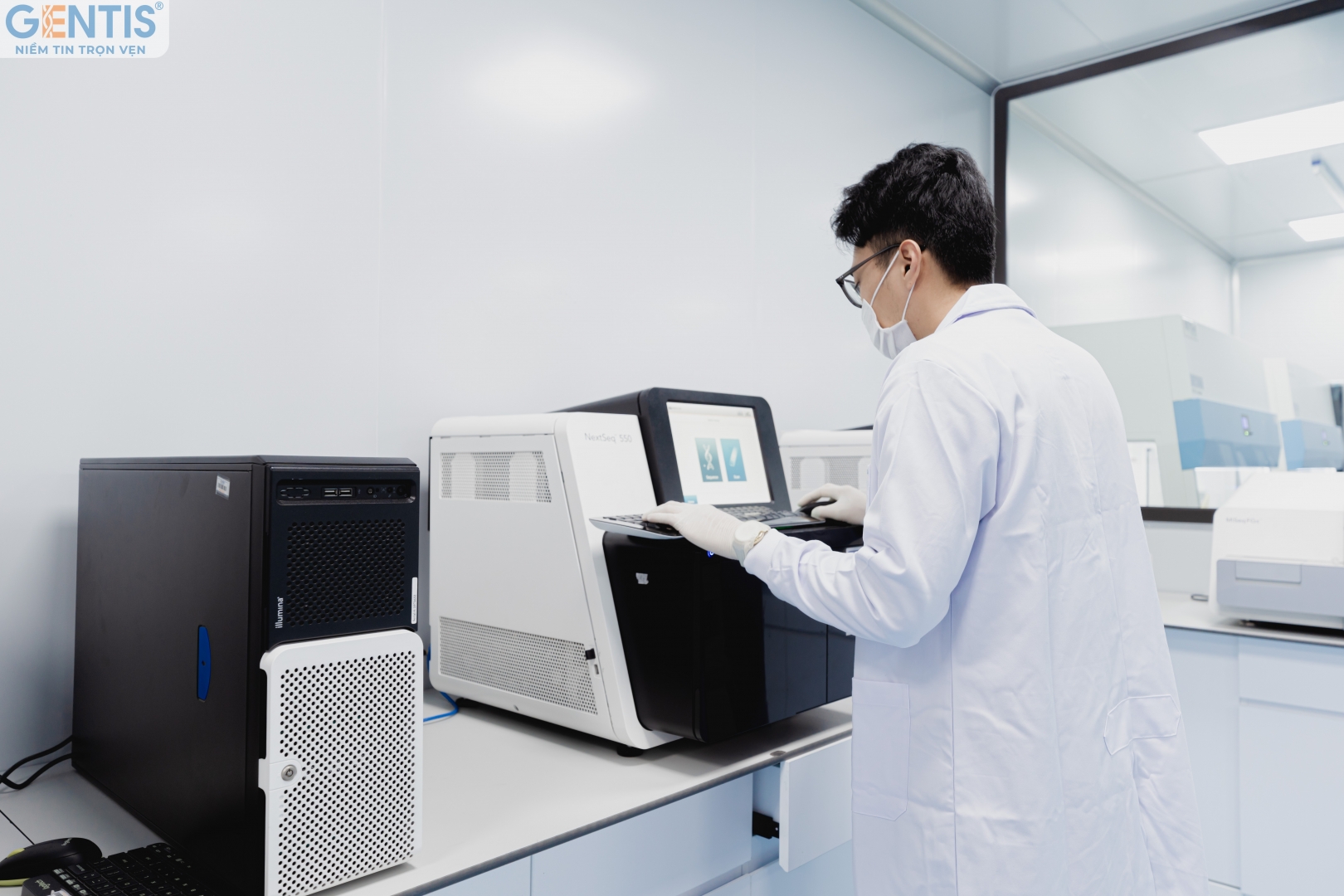
GENTIS brings together a team of personnel with expertise and experience in performing PGT in general and PGT-M in particular
For rare diseases PGT-M, GENTIS has performed 94 cycles with a total of 434 embryos. To achieve these achievements, GENTIS has:
* Assembled a team of personnel with expertise and experience in performing PGT in general and PGT-M in particular.
* Equipped with a full system of machinery, equipment and laboratories, meeting the stringent requirements of the test.
* Has a full range of tests from screening for disease-causing mutations in parents and family members to screening for embryos based on the results of the parents' tests.
* Has a team of genetic counselors before, during and after testing.
With the rapid development of modern technology, GENTIS will continue to research and implement PGT-M for other rare genetic diseases, contributing to the success of pre-implantation screening and bringing healthy babies to families.

